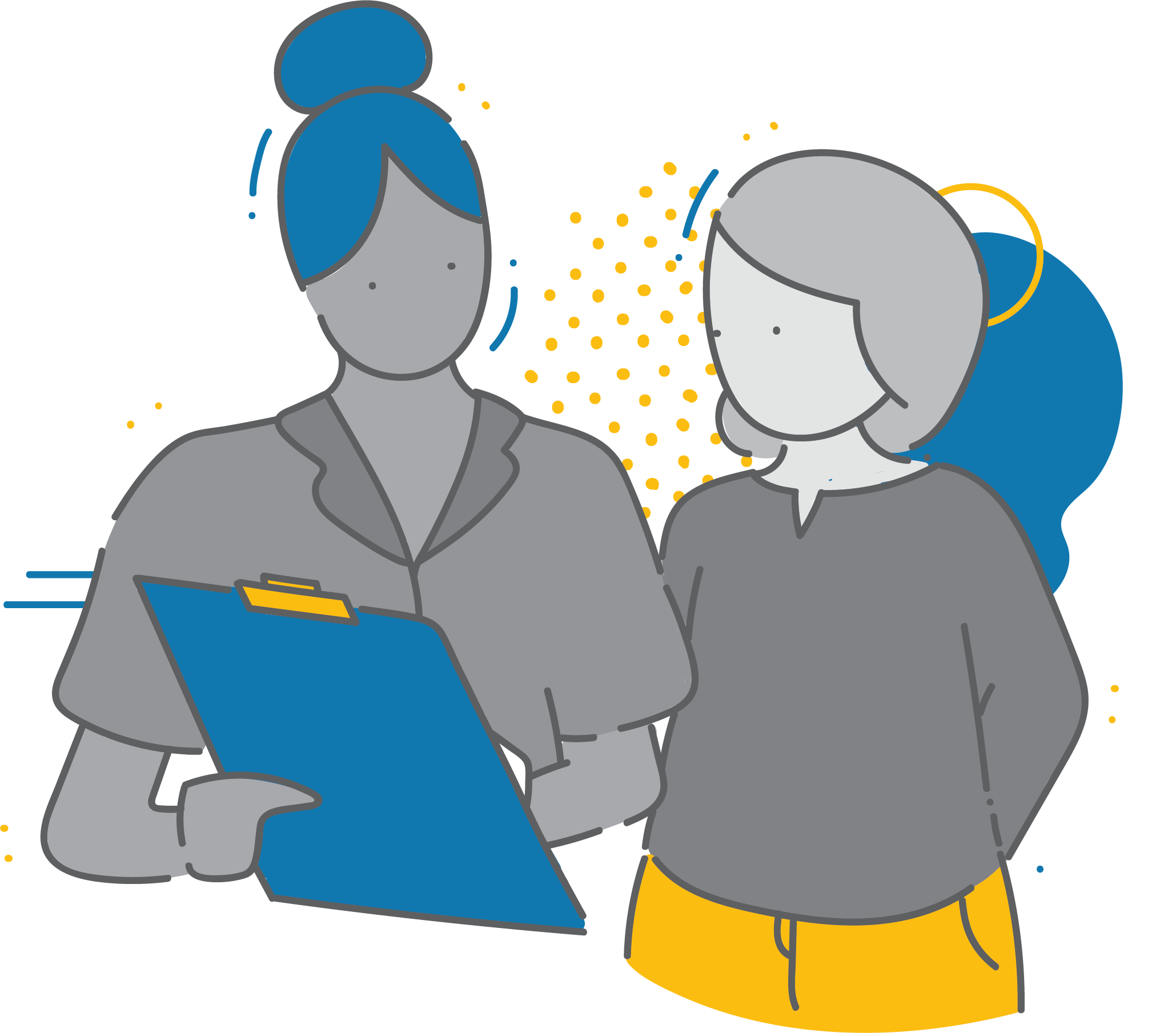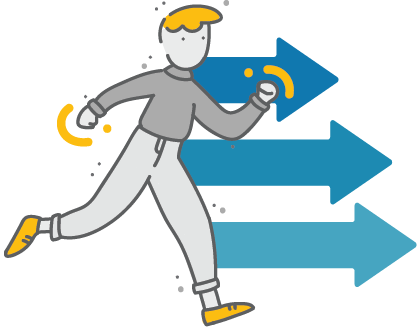Returning to Work
Introduction
Updated Jul 29, 2019
Swipe right to go to the next slide
Getting back to work or staying at work is an important part of your overall wellness. Research shows people with concussion and are working generally report:
Research also shows over half the people who get a concussion return to work within a month. Furthermore, more than 4 out of 5 people return to work within six months.

Working can help with your recovery! But it’s important not to jump back in before you are ready. Your family doctor can help determine when you are ready to return to work. Work readiness will look different for each person because everyone’s symptoms and job demands are different.
Returning to work when you are not ready can increase the risk of overdoing it and having to step back again to take more time off. This may reduce your confidence and can negatively impact your relationship with your employer.
The goal is to have a safe and sustainable return that allows you to make a meaningful contribution at work.
You may need to provide a medical note from your family doctor stating you are “safe” to return to work. The note will typically also include:
This medical note goes to your HR department or manager to help guide your return to work.
You can download a sample medical clearance letter from Concussion Awareness Training Tool (CATT) [pdf].

If you are currently working and struggling with symptoms, or your ability to do your job, there may be accommodations you can use to help make work more manageable. You may wish to read the article Job Accommodations for Concussion.
This article shares ideas for how to talk to your boss and coworkers about your recovery. The article also provides examples of common job accommodations that may make it easier to stay at work. This could include changes to job duties, changes to work hours, or both.
If you have not returned to work yet, your focus will be on building up your activity tolerances until you are ready to begin a graduated return to work. Gradual increases in everyday activities like exercise, housework, and social engagement can help improve your stamina. The goal is to have enough stamina to continue these important activities while you gradually return to work.
We will go into more detail in the article Building Capacity for Return to Work.
Just as you have used Action Plans to achieve other recovery goals, they can also help build work readiness.
For example, if your job requires computer work, you may develop an Action Plan to build up screen tolerance. If you work outdoors, you could create an Action Plan for decreasing sensitivity to light. If you work with people, an Action Plan for increasing exposure to busy settings may be helpful.
What would you like to work on?

Click the button above to toggle between light mode and dark mode. This toggle can also be found in the menu.
Hold
and tap
to zoom in.
Hold
and tap
to zoom out.
Hold
and tap
to zoom in.
Hold
and tap
to zoom out.
On most mobile devices, you can spread to zoom.
Increase your text size in your device settings.
Remember to take regular breaks while exploring MyGuide: Concussion.
Vancouver Coastal Health’s MyGuide Concussion Team would love to hear your feedback! It matters to us and helps to improve the experience for future users. Your responses will be kept anonymous and your privacy is a top priority. To complete a 15-20 minute online survey or request a telephone survey, please click the link below.